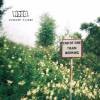 Although I understood theband's progression and need for growth, I never appreciated it or likedit as much as the older Hood. But the band produced some memorablesongs in these less memorable albums (and one thing which has neverwavered was Hood's ability to produce stunning album covers—they havegood aesthetic sense and photographic ability to beautifully captureEngland's fine fields with every album and single—this album is nodifferent). What is presently more caustic and inimical to Hood's soundnow, though, is their newfound alliance with San Francisco's Anticoncollective, the blossoming and sometimes intriguing indie hip hopoutfit. The Anticon influence is felt straightaway from the firstoffering after the introduction, "The Negatives." The song begins witha recycled hip hop beat which sounds ill-suited for Hood's accustomedrural beauty. The impingement of the city's sound into Hood's usualrusticity is hard to accept, even harder to accept than the previousmetamorphosis from short, concentrated meanderings into longer,digressive journeys. Were there room here for philosophical musingsabout urban sprawl and perhaps even the noxious Colonial influence onthe motherland, we might be able to discern why Hood have wanderedastray from their once-chosen path, adopting both the urban and theAmerican. But before we can think too much, "Any Hopeful ThoughtsArrive" follows closely on "The Negatives," confirming the Anticonalliance and dismissing any real hopeful thoughts. Again, a hip hopbeat with jump cuts and electronically scratched samples begins thesong, later mixing with the more Hood-ish arrangements (strings;layered vocals; thoughtfully-plucked guitars, repeated as befits theirdelicateness). The hip hop elements add nothing to the song; rather,they detract and derail, calling the listener's attention harshly away.The song is actually quite dazzling underneath the initial andlingering cityscape. Another song similarly afflicted is "The LostYou," the lead single from the album. The latter half of the album isby far the more pleasurable. "Still Rain Fell" is the best song on thealbum (the title coincides with my first favorite song of Hood'sdigressive period, "S.E. Rain Patterns"), eschewing wisely any of thecity sounds and retracing the more classic Hood sound. Just listen tohow the band, halfway through the song, mimics the sound of the gentlerain first with their guitars, then with their percussion. These aresounds the city cannot appreciate. Poetically, "L. Fading Hills" fadesout with the most panache on the album, nearly demanding another fewminutes to contemplate the ending themes further. The last song, "ThisIs It, Forever," is a two and a half minute sound collage tryingdesperately to be a song, recalling a lot of what was most compellingabout the old Hood. It's not so much the song "The Lost You" whichtroubles me. It's the lost Hood. The band has lost their way slightly,having wandered too far off some woodland path and emerged throughbrush and shrub on the boundary of some deformed city whose siren songhas lulled Hood into a misguided collaboration. The later moments of"Outside Closer" give hope that some new streams and meadows mightpersuade them back towards their riotous roots in Spofforth Hill.
Although I understood theband's progression and need for growth, I never appreciated it or likedit as much as the older Hood. But the band produced some memorablesongs in these less memorable albums (and one thing which has neverwavered was Hood's ability to produce stunning album covers—they havegood aesthetic sense and photographic ability to beautifully captureEngland's fine fields with every album and single—this album is nodifferent). What is presently more caustic and inimical to Hood's soundnow, though, is their newfound alliance with San Francisco's Anticoncollective, the blossoming and sometimes intriguing indie hip hopoutfit. The Anticon influence is felt straightaway from the firstoffering after the introduction, "The Negatives." The song begins witha recycled hip hop beat which sounds ill-suited for Hood's accustomedrural beauty. The impingement of the city's sound into Hood's usualrusticity is hard to accept, even harder to accept than the previousmetamorphosis from short, concentrated meanderings into longer,digressive journeys. Were there room here for philosophical musingsabout urban sprawl and perhaps even the noxious Colonial influence onthe motherland, we might be able to discern why Hood have wanderedastray from their once-chosen path, adopting both the urban and theAmerican. But before we can think too much, "Any Hopeful ThoughtsArrive" follows closely on "The Negatives," confirming the Anticonalliance and dismissing any real hopeful thoughts. Again, a hip hopbeat with jump cuts and electronically scratched samples begins thesong, later mixing with the more Hood-ish arrangements (strings;layered vocals; thoughtfully-plucked guitars, repeated as befits theirdelicateness). The hip hop elements add nothing to the song; rather,they detract and derail, calling the listener's attention harshly away.The song is actually quite dazzling underneath the initial andlingering cityscape. Another song similarly afflicted is "The LostYou," the lead single from the album. The latter half of the album isby far the more pleasurable. "Still Rain Fell" is the best song on thealbum (the title coincides with my first favorite song of Hood'sdigressive period, "S.E. Rain Patterns"), eschewing wisely any of thecity sounds and retracing the more classic Hood sound. Just listen tohow the band, halfway through the song, mimics the sound of the gentlerain first with their guitars, then with their percussion. These aresounds the city cannot appreciate. Poetically, "L. Fading Hills" fadesout with the most panache on the album, nearly demanding another fewminutes to contemplate the ending themes further. The last song, "ThisIs It, Forever," is a two and a half minute sound collage tryingdesperately to be a song, recalling a lot of what was most compellingabout the old Hood. It's not so much the song "The Lost You" whichtroubles me. It's the lost Hood. The band has lost their way slightly,having wandered too far off some woodland path and emerged throughbrush and shrub on the boundary of some deformed city whose siren songhas lulled Hood into a misguided collaboration. The later moments of"Outside Closer" give hope that some new streams and meadows mightpersuade them back towards their riotous roots in Spofforth Hill. samples:
Read More

